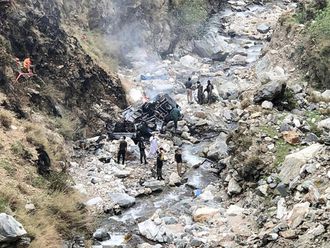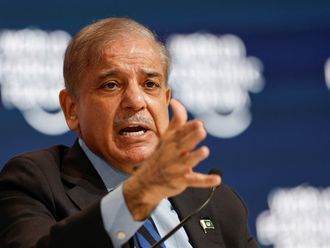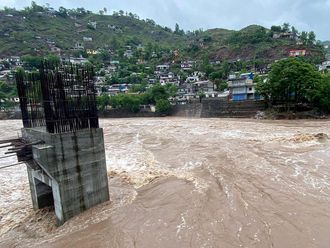Islamabad: Following recent cross-border tensions, Pakistan and Afghanistan have agreed to work together for peace and development of the region, officials say.
In a rare phone call from Afghanistan President Ashraf Gani to Pakistani Prime Minister Imran Khan on Sunday, the two leaders discussed security issues, ongoing Afghan peace efforts, as well as bilateral economic cooperation to foster peace in the region.
“For the sake of the people of the two countries, the aim of the leadership should be to help build peace, promote economic progress and advance connectivity for regional prosperity,” Imran said.
The Pakistan premier said, “The prolonged Afghan conflict has damaged Afghanistan and adversely affected Pakistan over the past decades.”
Imran told the Afghan leader that Pakistan would make every effort to advance the common objectives of restoring peace in Afghanistan and ensuring a productive bilateral relationship between the two countries, according to a statement released by the PM’s Office.
He reiterated his vision for finding a peaceful solution to Afghan conflict, fully owned and led by Afghans.
He assured Gani that Pakistan would make all efforts to advance the common objectives of building peace in Afghanistan.
During the conversation, the Afghan president accepted Imran’s invitation to visit Islamabad “for a comprehensive exchange of views on all issues of mutual interest,” according to the officials.
Dates for the visit would be decided through mutual talks.
Pakistan is also facilitating the ongoing peace talks among Afghan and US government and Taliban to end decades of aggressions in the neighbouring country.
The interaction between Imran and Gani came days after a cross-border terrorist attack in North Waziristan from Afghanistan side that killed three Pakistani soldiers after which Pakistan urged Afghan government to take immediate action.
Pakistan has already fenced almost 1,000km border with Afghanistan to restrict terrorist infiltrations and illegal migration and plans to cover the entire length of 2,400km by the end of 2019, according to Inter-Services Public Relations (ISPR).












